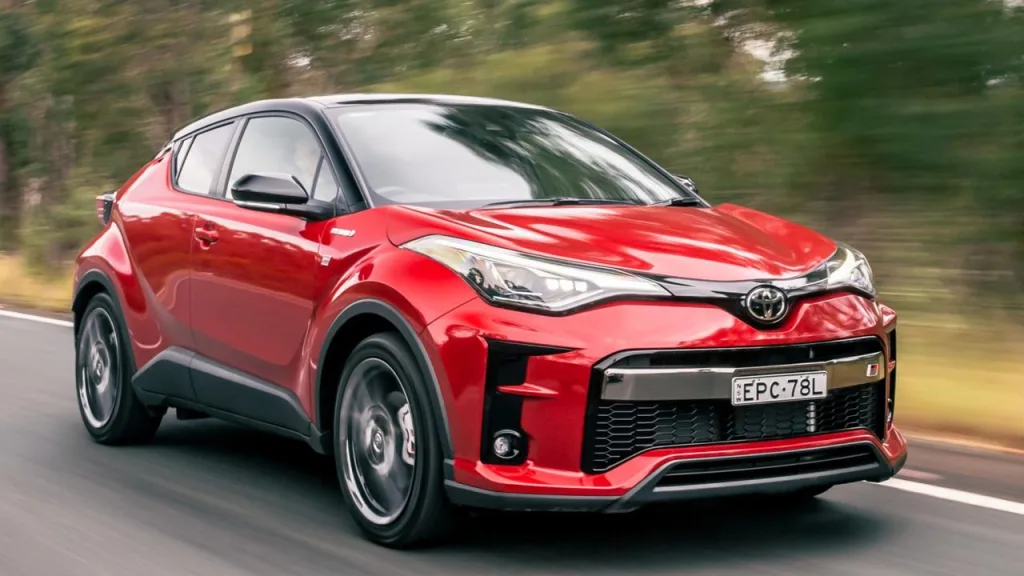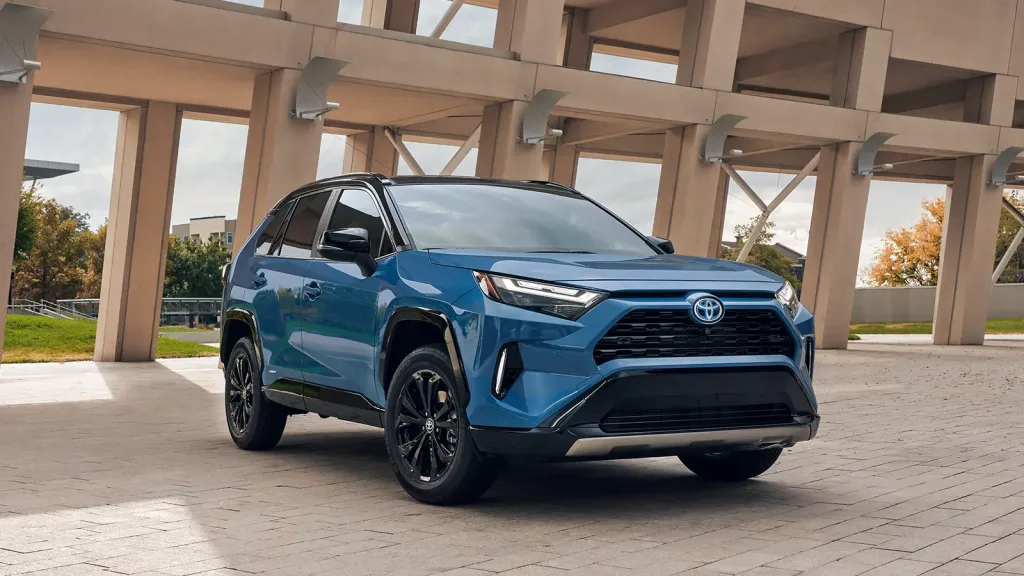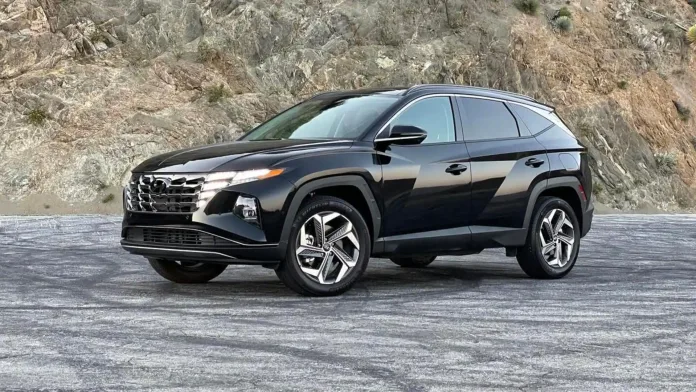In the evolving landscape of India’s automotive industry, Hybrid Vehicles a fascinating shift is taking place. While electric vehicles (EVs) have dominated the green mobility conversation for years, hybrid cars are quietly gaining significant traction. As of early 2025, hybrid cars in India have achieved a market share comparable to fully electric vehicles, which currently stand at about 2.5% of the total automotive market.
This trend isn’t happening by accident. As Vikram Gulati, Country Head and Executive Vice President of Toyota Kirloskar Motor, explains, “Hybrids offer a clean, practical, and convenient green mobility solution that doesn’t depend on charging infrastructure.” This practicality is resonating with Indian consumers who are environmentally conscious but concerned about the limitations of full EVs.
The appeal of hybrid cars lies in their dual-power approach – combining a conventional internal combustion engine with an electric motor. This technology delivers immediate environmental benefits while addressing the infrastructure challenges that have slowed EV adoption across the country.
The Current State of Hybrid vs. Electric Vehicles in India
Hybrid cars are proving to be more than just a transitional technology in India. They’re establishing themselves as a legitimate long-term solution that offers the best of both worlds – reduced emissions without the range anxiety associated with pure electric vehicles.
| Vehicle Type | Current Market Share | Infrastructure Dependency | Emission Reduction |
|---|---|---|---|
| Hybrid Cars | ~2.5% | Low | 30-50% |
| Electric Vehicles | ~2.5% | High | 100% (during use) |
| Conventional | ~95% | None | 0% |
The data shows that hybrids are achieving parity with EVs in market adoption despite having fewer government incentives. This suggests strong consumer preference based on practical considerations rather than policy-driven decisions.

Upcoming Hybrid Cars India: Models to Watch in 2025
The growing interest in hybrid technology has prompted several manufacturers to announce new models for the Indian market. These upcoming hybrid cars India will feature advanced technologies and improved fuel efficiency.
Toyota, a global leader in hybrid technology with over 26 million electrified vehicles sold worldwide, continues to expand its hybrid lineup in India. The company’s focus on strong hybrid technology has resonated with Indian consumers looking for significant fuel savings without compromising on performance.
Maruti Suzuki, India’s largest automaker, views hybrids as a catalyst for electrification. The company has plans to introduce more affordable hybrid options, potentially revolutionizing the mass market segment.
Mercedes-Benz is taking a different approach, focusing on performance-enhancing hybrid technologies that appeal to luxury car buyers. Their upcoming models will showcase how hybrid technology can enhance driving experience while reducing environmental impact.
Other manufacturers including Honda, Hyundai, and Tata Motors have also announced plans to introduce or expand their hybrid offerings in the Indian market over the next two years.
Hybrid Cars in India Under 10 Lakhs: Affordable Options
The availability of hybrid cars in India under 10 lakhs is expanding as technology costs decrease. This price segment is crucial for mass adoption in a price-sensitive market like India.
Currently, the options for hybrid cars in India under 10 lakhs are limited but growing. Maruti Suzuki’s mild hybrid technology is available in several models in this price range, offering modest fuel efficiency improvements at an accessible price point.
Budget-conscious consumers are actively searching for hybrid cars in India under 10 lakhs, as evidenced by the high search volume (5,400 monthly searches) for this specific term. Manufacturers are responding to this demand by working to introduce more affordable hybrid options.
Hybrid Cars in India Under 15 Lakhs for Mid-Range Buyers
The mid-range segment of hybrid cars in India under 15 lakhs is growing rapidly. This price bracket offers more sophisticated hybrid systems with greater fuel savings and performance benefits.
Several manufacturers now offer hybrid cars in India under 15 lakhs with impressive features. Models in this category typically feature stronger hybrid systems that can operate in electric-only mode for short distances, providing significant fuel savings in city driving conditions.
For many families, hybrid cars in India under 15 lakhs represent the sweet spot of value and efficiency. They offer enough space and features for family use while delivering the economic benefits of hybrid technology.
Cheapest Hybrid Cars in India: Budget-Friendly Choices
For those on a tight budget, the cheapest hybrid cars in India still offer significant fuel savings despite their lower price point. These typically feature mild hybrid systems that provide modest assistance to the combustion engine rather than the ability to drive on electric power alone.
Consumers looking for the cheapest hybrid cars in India have several options to consider in 2025. Maruti Suzuki’s Smart Hybrid vehicles are among the most affordable, with the technology available on popular models like the Swift and Baleno.
Market competition is driving down prices, making the cheapest hybrid cars in India more accessible. As production volumes increase and technology costs decrease, we can expect even more affordable options to enter the market.
Hyundai Hybrid Cars India: Current and Future Models
Hyundai’s approach to the Indian market has been cautious but strategic. The Hyundai hybrid cars India lineup is expected to expand significantly in the coming years as the company leverages its global experience with electrified vehicles.
The technology in Hyundai hybrid cars India is competitive with other major manufacturers, offering good fuel efficiency and performance. Their hybrid systems tend to focus on enhancing the driving experience while reducing fuel consumption.
Consumer interest in Hyundai hybrid cars India has grown as the company introduces new models. With a reputation for reliability and value, Hyundai is well-positioned to capture a significant share of the growing hybrid market in India.

Best Hybrid Cars India: Top Models Worth Considering
The best hybrid cars India offers combine fuel efficiency with modern features and reliability. These vehicles represent the cutting edge of hybrid technology available to Indian consumers.
Reviews of the best hybrid cars India consistently highlight Toyota and Maruti Suzuki models. Toyota’s strong hybrid technology, featured in vehicles like the Camry Hybrid and Urban Cruiser Hyryder, offers exceptional fuel efficiency and refined performance.
Consumers researching the best hybrid cars India should consider factors beyond just price. Fuel efficiency, maintenance costs, feature set, and resale value all contribute to the overall ownership experience of a hybrid vehicle.
Why Hybrid Cars Are Gaining Ground: The Technical Advantage
The growing popularity of hybrid cars in India can be attributed to several technical advantages they offer over both conventional vehicles and full EVs.
Types of Hybrid Technologies in the Indian Market
- Mild Hybrids (P0): These systems provide minimal electric assistance to the engine, primarily through regenerative braking and start-stop functionality. They’re the most affordable hybrid option but offer modest fuel savings of 5-10%.
- Strong Hybrids: These systems can power the vehicle on electric power alone for short distances and offer significant fuel savings of 30-50%. Toyota is the leading proponent of this technology in India.
- Plug-in Hybrids (PHEVs): These vehicles can be charged from an external power source and typically offer 30-50 km of pure electric range before the combustion engine activates. They’re less common in India due to their higher cost.
- Range Extender (REX) Hybrids: An emerging trend, particularly in China, these vehicles run primarily on electric power with a small combustion engine that serves only to generate electricity when the battery runs low.
The diversity of hybrid technologies allows consumers to choose the option that best suits their driving habits and budget. This flexibility is a key factor in the growing adoption of hybrid vehicles in India.
The Future Outlook for Hybrid Cars in India
The future looks promising for hybrid cars in the Indian market. As the country continues its journey toward electrification, hybrids offer a practical stepping stone that delivers immediate environmental benefits without requiring massive infrastructure investments.
Several factors will influence the growth of hybrid vehicles in India:
- Government Policy: While current incentives favor full EVs, there’s growing recognition of the role hybrids can play in reducing emissions in the short to medium term.
- Infrastructure Development: As charging infrastructure improves, plug-in hybrids may become more attractive, offering the best of both worlds.
- Technology Costs: Continued reduction in battery and electric component costs will make hybrid technology more affordable across all vehicle segments.
- Consumer Awareness: As more Indians experience the benefits of hybrid technology, word-of-mouth recommendations will drive further adoption.
- Grid Decarbonization: The environmental benefits of both hybrids and EVs will increase as India’s power grid becomes greener.
Industry experts predict that hybrid vehicles could capture 5-10% of the Indian automotive market by 2030, representing significant growth from current levels.
Also Read: Maruti Suzuki’s e-Vitara Launch: A New Chapter in Indian EV
Frequently Asked Questions About Hybrid Cars in India
What is the difference between a mild hybrid and a strong hybrid?
A mild hybrid system provides minimal electric assistance to the combustion engine, typically through regenerative braking and start-stop functionality. It cannot power the vehicle on electric power alone. A strong hybrid system has a more powerful electric motor and battery, allowing the vehicle to run on electric power alone for short distances, resulting in significantly better fuel efficiency.
Are hybrid cars worth the premium over regular petrol cars in India?
For most drivers, the fuel savings from a hybrid car will eventually offset the higher purchase price, especially for those who drive frequently in city conditions. Strong hybrids can offer 30-50% better fuel efficiency than comparable petrol cars, which translates to significant savings over the vehicle’s lifetime. Additionally, hybrids typically have higher resale value.
Do hybrid cars need to be charged like electric vehicles?
Standard hybrids (non-plug-in) do not need to be charged from an external power source. They generate electricity through regenerative braking and the combustion engine. Plug-in hybrids can be charged from an external source to maximize their electric driving range, but they will still function as regular hybrids if not charged.
What is the maintenance cost of hybrid cars compared to regular cars?
Hybrid cars generally have similar or slightly higher maintenance costs compared to conventional vehicles. However, they typically experience less wear on brake components due to regenerative braking. The hybrid battery is covered by an extended warranty (usually 8 years) by most manufacturers in India.
Which is the cheapest hybrid car available in India?
As of 2025, Maruti Suzuki’s mild hybrid technology, available on models like the Swift and Baleno, represents the most affordable entry point into hybrid technology in India. These vehicles start under 10 lakhs and offer modest fuel efficiency improvements over their non-hybrid counterparts.
How long do hybrid batteries last in Indian conditions?
Most hybrid batteries are designed to last the lifetime of the vehicle (15+ years). Manufacturers typically offer 8-year warranties on hybrid batteries in India. The hot climate in parts of India can affect battery life, but cooling systems in modern hybrids are designed to mitigate this issue.
Are there any government incentives for buying hybrid cars in India?
Currently, government incentives primarily target full electric vehicles rather than hybrids. However, some states offer reduced road tax for hybrid vehicles. Industry bodies are advocating for more supportive policies for hybrid vehicles given their immediate environmental benefits.
Conclusion: The Hybrid Advantage in India’s Unique Context
Hybrid cars are gaining ground in India not just as a transitional technology but as a practical long-term solution that addresses the country’s unique challenges. With comparable market share to EVs despite fewer incentives, hybrids have proven their appeal to Indian consumers.
The combination of immediate environmental benefits, reduced dependence on charging infrastructure, and significant fuel savings makes hybrid technology particularly well-suited to India’s current situation. As the technology continues to evolve and become more affordable, we can expect hybrid cars to play an increasingly important role in India’s automotive landscape.
For consumers considering their next vehicle purchase, hybrids offer a compelling package that balances environmental consciousness with practical considerations. Whether you’re looking at affordable options under 10 lakhs or premium models with advanced features, the growing range of hybrid vehicles in India ensures there’s an option to suit most needs and budgets.
As India continues its journey toward a greener automotive future, hybrid cars represent not just a bridge technology but a significant destination in their own right.


